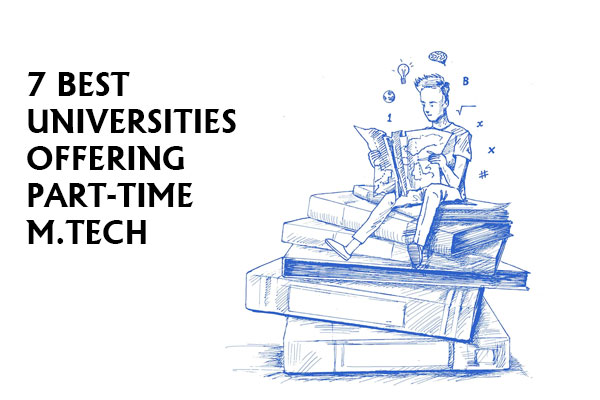MBA - Working Professional
Introduction
While working a full-time job, pursuing an MBA remotely can be a wise investment in your professional development. You can continue working and applying what you learn in real time, all while gaining new knowledge and abilities. But it's crucial to take into account how much time and effort it takes to juggle employment and school. Making sure the MBA program you select is respectable and approved is also crucial. Although many people have effectively completed distance learning MBAs while working, it's important to consider the advantages and disadvantages to decide if this is the best option for your career and personal objectives.
What is an MBA Course?
The term Master of Business Administration is the full form of the MBA program. The MBA is a well-liked postgraduate program in management that offers a number of specializations, including supply chain management, finance, marketing, and human resource management. The MBA program lasts for two years. Four semesters of MBA courses are required, with a focus on various aspects of business, management, leadership, and problem-solving techniques.
Why Should Working Professionals Do an MBA Course?
There are a few crucial advantages to pursuing an MBA for working professionals following work experience. They are below-described:
-
Useful Application: Possessing work experience has improved your comprehension of actual business obstacles. Having an MBA after working can facilitate the application of theoretical knowledge learned in the program to real-world work experiences, which will help you make the connection between academic concepts and real-world situations.
-
Enhanced Viewpoint: Work experience gives you a better understanding of various markets, corporate hierarchies, and professional networks. These experiences can enhance your MBA program by providing a range of viewpoints, adding to thought-provoking class discussions, and deepening your comprehension of business concepts.
-
Networking Possibilities: You bring a professional network with you when you pursue an MBA following work experience. Using this network to access job opportunities, seek career advice, and work together on projects can be beneficial. To further expand your professional network, you can also establish relationships with your MBA classmates, who come from a variety of industries and backgrounds.
-
Leadership Development: Gaining real-world experience before enrolling in an MBA program gives you a stronger grasp of management issues and practical leadership abilities. The program's teachings on leadership theories and frameworks may be easier to relate to after having this experience. Your career advancement can be expedited by implementing these acquired insights into your present or upcoming managerial positions.
Eligibility Criteria for the Master of Business Administration for Working Professionals:
For students to be eligible for direct MBA admission, they need to fulfil some basic requirements, which are mentioned below:
- Candidates must have completed their undergraduate degree with at least 50% marks.
- Students must have completed their graduation from a recognized university.
Master of Business Administration Course Duration:
The duration of the MBA is two years for working professionals, and exams are held semester-wise. So, there are a total of four semesters.
MBA Specialization Courses for Working Professionals:
There are a few prominent specialization courses that you can select in your MBA course; they are listed below:
- MBA in Finance
- MBA in Human Resource Management
- MBA in Business Analytics
- Finance
- Human Resource Management
- Operations Management
- Project Manager
- Business Analyst
- Management Consultant
Skills Required for the MBA Program for Working Professionals:
There are two types of skills needed for doing an MBA course for anyone who wants to pursue this prestigious program. They are explained below:
-
Soft Skillswhich include problem-solving, teamwork, communication, leadership, and time management, are essential for success in the business sector. Strong communication abilities are essential for MBA candidates in order to express concepts, establish rapport, and engage in productive negotiation. To inspire and motivate groups of people toward a common objective, they should also possess leadership qualities. In the fast-paced, cutthroat business world, soft skills like problem-solving, teamwork, and time management are just as important.
-
Technical Skills like operations management, marketing, data analytics, financial analysis, and data analysis are also crucial for those aspiring to an MBA. Hard skills are usually acquired through formal education and real-world application. To comprehend business operations and make wise decisions, MBA candidates must have a solid foundation in finance, accounting, and economics. Gaining expertise in marketing, operations management, and data analytics can aid in the creation of fresh plans and the expansion of businesses.
Top Universities for Doing MBA Programs for Working Professionals in India:
There are several important and prestigious colleges in India for doing a Master of Business Administration for working people. They are below-described:
- P. Jain Institute of Management.
- NMIMS Distance Learning MBA.
- DY Patil University.
- IMT Distance Learning MBA.
- Symbiosis Distance Learning MBA.
Career Options After Completion of an MBA for Working Professionals:
There are many great and crucial career opportunities after the accomplishment of a master of business administration, and they play an important role in one’s life to change as per their interests and skills. So, they are listed below:
- Marketing Manager
- Financial Management
- HR Manager
- Financial Analyst
- Operations
- Information Technology
- Project Manager
- Sales Manager
- Brand Manager
Read Also:
Top Courses
Updates
-

Part Time MBA Programs in India - Unlimited guidelines 2023
September 09, 2022 -

Can I Pursue a Part Time B.Tech after Getting My Diploma?
September 09, 2022 -

7 Best Universities Offering Part-time M.Tech
September 05, 2022 -

Best Part-time B Tech University/ Colleges In India?
June 28, 2022

